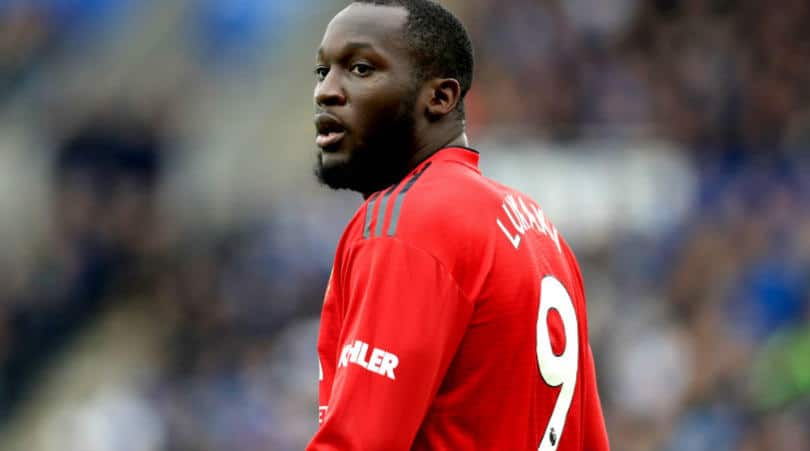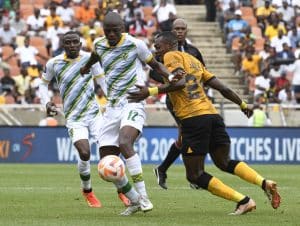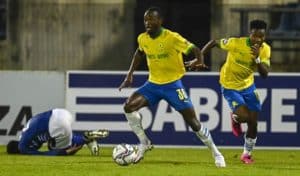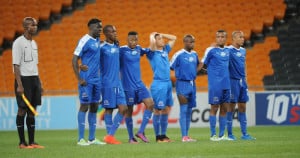Manchester United may need Belgian international Romelu Lukaku to unlearn everything Mourinho taught him to become the player they need.
He was the £75-million afterthought, only sent for after the game, and perhaps the tie, was over. He was only summoned after the perplexingly bad Alexis Sanchez and the terminally slow Juan Mata.
The 10th-most expensive footballer of all time felt like the costliest bit-part player in the global game when Romelu Lukaku made his belated, 84th-minute introduction against Paris Saint-Germain on Tuesday.
He has been rejected by one of Manchester United’s greatest goalscorers, Ole Gunnar Solskjaer; omitted for one of their favourite sons, Marcus Rashford. Lukaku has not felt so peripheral since his days as a teenager at Chelsea. As he prepares to return to Stamford Bridge in the FA Cup, his plight forms part of the legacy of another who has served the two clubs.
Change the channel
A few months into his reign at Old Trafford, Jose Mourinho argued that his task was tougher because, in effect, he had to deprogramme his players, to delete Louis van Gaal’s idiosyncratic instructions from their memory banks; they had been configured to pass the ball sideways.
Perhaps Solskjaer would empathise. Perhaps he has to deMourinhoify Lukaku, to stop his conversion into the Portuguese’s type of centre-forward and restore him to the player he was. To make him more the sort of striker United have tended to possess.
If, metaphorically, he has to turn Lukaku’s Old Trafford career around, there is a more literal sense in which he has to move the Belgian: around at least 90 degrees, if not 180.
‘At times he’s a good target man, but if you tell him to be a target man he’ll never face the goal,’ Solskjaer said after Lukaku’s scoring cameo against Bournemouth in December. ‘Today he was side-on and he’s got the attributes of a top, top striker.’
Pre-Mou Rom
The West Brom and Everton Lukaku was a player who ran beyond defences, sprang offside traps and sprinted into channels. That is a description which now evokes Rashford rather more. In contrast, Mourinho rarely saw Rashford as a striker. His four quintessential centre-forwards were Didier Drogba, Diego Milito, Diego Costa and Zlatan Ibrahimovic: focal points, battering rams, man mountains (though less so in the 6ft Milito’s case).
Lukaku has said that he bulked up for the World Cup, yet it felt more of an attempt to be a Mourinho striker. It has given him a heavyweight boxer’s build in a game where ever more of the leading strikers are slicker and quicker, lighter and brighter. He needs less muscle and more movement to run onto the ball more than he holds it up.
Perhaps the right intentions have produced the wrong result, a willingness to please his former manager making him a player out of keeping with United’s past. Ibrahimovic apart, their last real back-to-goal striker was Mark Hughes; thereafter, Solskjaer’s mentor Sir Alex Ferguson preferred forwards who faced forward.
So, Lukaku suggested, does he. ‘[Solskjaer] knows I want to play through the middle, facing the goal at all times, he knows I’m really dangerous at that,’ he said in January.
His most encouraging display under the Norwegian came facing the goal and setting goals up, if not quite through the middle. His use towards the right, as the strikers split in a four-diamond-two formation in the FA Cup victory at Arsenal, was inconceivable under Mourinho. It nevertheless felt familiar: Roberto Martinez used Lukaku’s pace and directness off the right profitably when Everton overcame Arsenal 3-0 in 2014, and again when Belgium beat Brazil at the World Cup last summer.
Back to the bench
Since then, that speed has felt blunted by his size; that potency diminished by an attempt to be the selfless, static fulcrum that Mourinho prefers.
In the Portuguese’s defence, Lukaku set a personal best for assists last season; he also averaged fewer shots per game than in any of his four campaigns for Everton. He returned a more-than-respectable 33 goals in 73 games for Mourinho – but take away 11 in the first 10, perhaps before he was more attuned to the Portuguese’s methods and demands, and it becomes 22 in 63; little better than one every three.
Mourinho’s instructions went far beyond scoring. He was adamant that he was not judging Lukaku on his goal return alone. He once called the Belgian ‘untouchable’. Solskjaer was swift to adjust that status to ‘substitute’.
Lukaku has presented a conundrum to managers, as players of vast potential can.
The temptation, in football as in life, is to judge on the basis of looks. But 6ft 3in forwards should not be stereotyped as target men; Tammy Abraham, another burdened with obvious Drogba comparisons but who actually has more common denominators with Lukaku, is a similar case in point.
If Mourinho saw the huge frame, Solskjaer probably has more interest in the pace that – at least when slimmed down – could rival Rashford’s. There is no doubt that the Englishman has the edge when it comes to relentlessness. Lukaku’s infamously low running statistics at Everton, when his average distance per 90 minutes in the 2015/16 Premier League was just 8.6km, placed him 503rd and last among the division’s outfield players.
But he also broke swiftly, came from deep, scored more on the counter-attack and shot more from outside the box. He was more explosive, more exciting. Perhaps he was more of himself, rather than doing an impression of Mourinho’s four target men of the apocalypse.
Getting that Lukaku back may not be a quick and simple fix – Romelu was not rebuilt in a day – but he may be a player who would suit Solskjaer. He may have to unlearn the lessons of the last 18 months. It could be a period of deMourinhoification.







